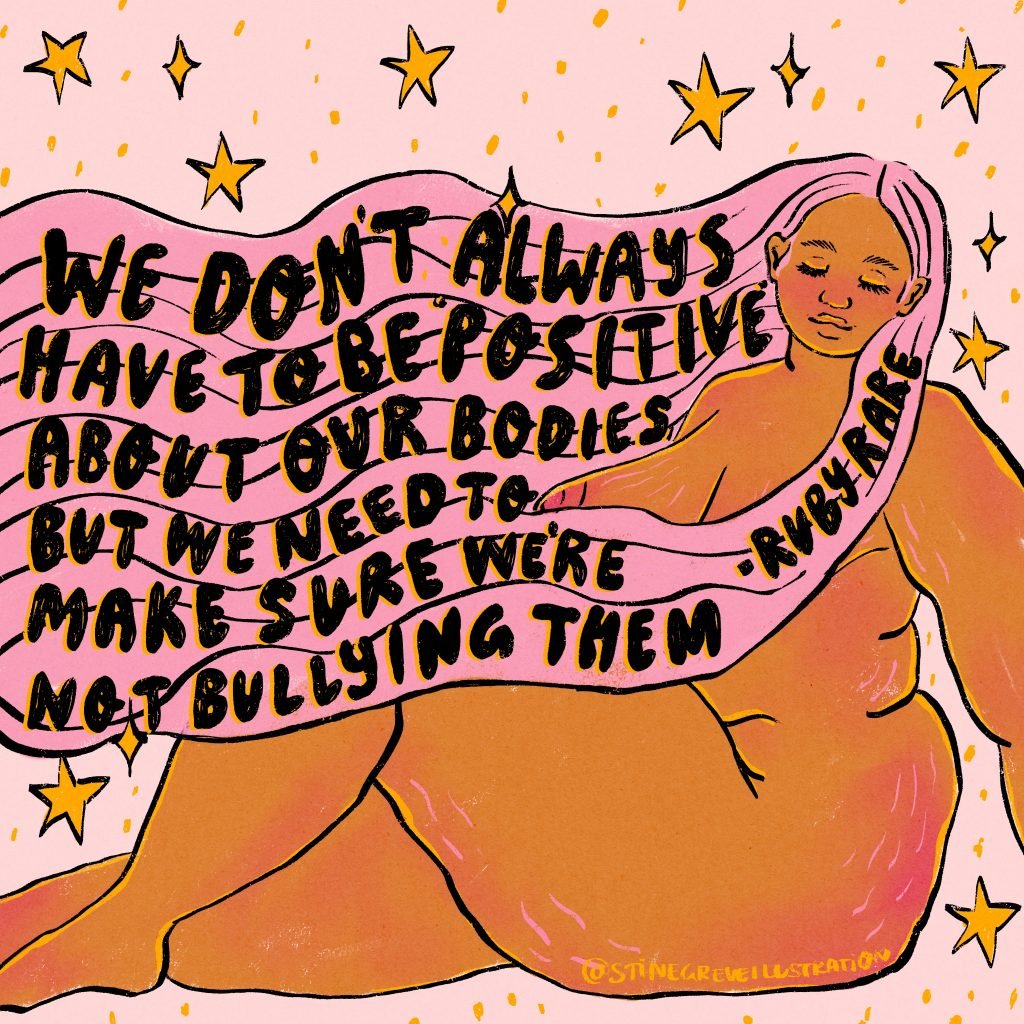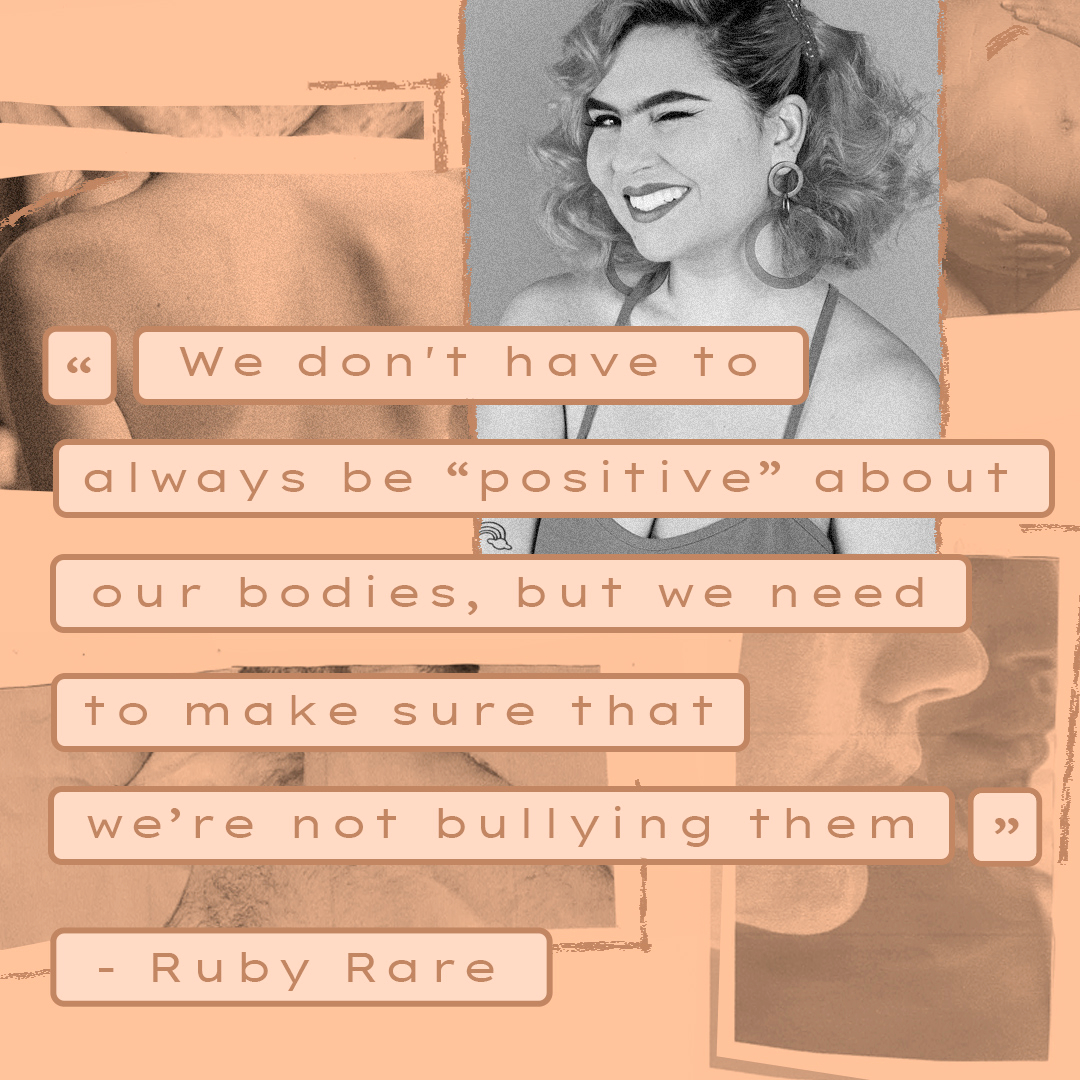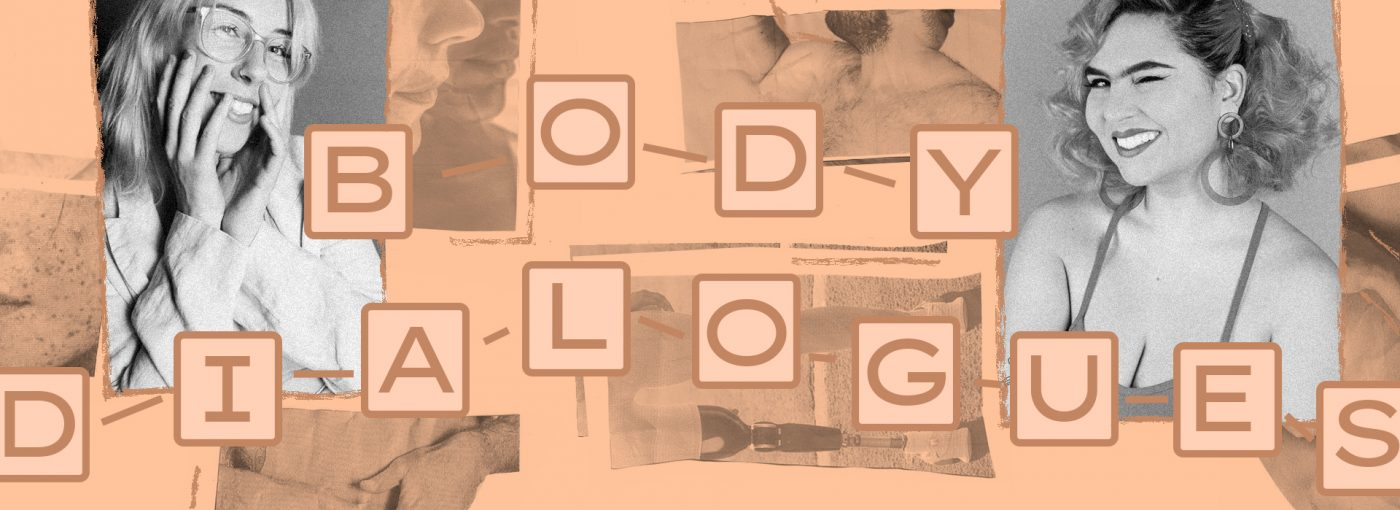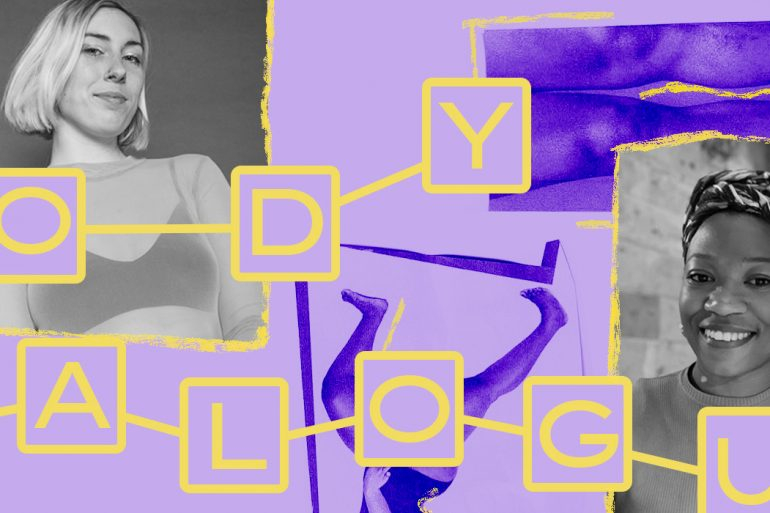Did you receive sex education when you were younger? And if you did, how often were your classes, what did you learn, and were there spaces for you to follow up with questions?
In 2016, a survey of young people aged between 16-24 found that one in seven had not received any sex and relationships education during their time at school. And those who did received a maximum of one or two classes a year, if they were lucky.
These brief sessions may have touched on how to put on a condom, the dangers of STIs and pregnancy from a purely biological standpoint and yet, as adults, we are expected to know all about the intricacies of consent, what we want from our intimate relationships, how to communicate that, and so much more…
The impact of having little to no sex education, combined with Hollywood’s portrayals of continous airbrushed bodies and orgasmic sex, it’s no wonder so many of us are left feeling inadequate. In fact, body image is the biggest reason for bedroom insecurities, affecting 79% of women, and 60% of men in the US and Europe, not to mention for trans and non-binary people dealing with body shame left, right and centre. Rated second on the list of insecurities was sexual performance.
Fan-girling and imposter syndrome
At the forefront of the British sex-positive movement, spearheading a change in the narrative around pleasure-based sex ed and body-love, is none other than author and sex educator Ruby Rare. Having fan-girled her for a fair few years, I finally had the pleasure of connecting with her at a sex writers’ picnic in the Summer of 2021. I had also interviewed them in early lockdown for Sonder & Beam the year before and had sat eagerly at their pre-pandemic Bisexual Sharing Circle.
So, it’s safe to say I was thrilled to speak to Ruby in more depth about the topic of the body and how it intersects with their work and life.
For a bit of TMI context, the day we spoke, I almost rescheduled, as I was having terrible period pains, and just found out I had to unexpectedly move house. As I’m embarking on a practice of listening to my body more, I reflected on whether to cancel. Instead, I trusted something in my gut that told me our chat would have a cosy outcome, despite the period drama.
And how did my gut know this? Well, for one, in Ruby’s words, they’re a “generally very enthusiastic person, who wants to centre joy, celebration, and silliness” in their own and other people’s lives. And the way they’ve been achieving this in the last seven years has been through talking about sex, relationships, and bodies.
Ruby’s career started out at Brook, a charity in the UK that offers sexual health services, education and wellbeing services for young people. They share that while they loved working with young people, over the years they realised that adults were asking the very same questions as the kids, and this lack of know-how needed to be addressed.
Ruby explains that this gap in knowledge is because we are part of a ‘weird’ generation. “We feel so wronged by the sex and relationship education we didn’t get, so we’re desperately trying to right those wrongs for ourselves and others,” they continue.
I’m acutely aware of what Ruby is talking about. I can recall three basic sex ed moments growing up – and I reckon that’s being generous – a dodgy VHS tape played in primary school of someone giving birth; a citizenship class held by my tutor where he put a condom on a wooden dildo; and a biology class where we learnt how sperm work.
It’s safe to say, I wasn’t taught about consent, pleasure, or intimacy. Let alone all of the topics that Ruby has written about in their gorgeously illustrated 2020 book, Sex Ed: A Guide for Adults.
It was eye opening to hear about how anxious and “imposter syndrome-y” Ruby was when the book came out. Lest we forget that year was tough on us all for obvious reasons, but they explain that: “bringing out something is super vulnerable, and weird, and tender.”
These are feelings I can empathise with when it comes to putting anything of my own writing out into the digital-sphere, let alone a physical book! Nevertheless, I’m so grateful Ruby was able to move through the fear, as there is a desperate need for the type of information their book contains.
Frustrating dichotomies
“I think there is a very punishing culture of scrutinising your body,” Ruby says. “People really fixate and judge themselves by a particular set of criteria or standards.”
The standards Ruby is talking about are our society’s dominant systems of white capitalist patriarchy that loves to categorise things, often into dichotomies. This is especially evident when it comes to bodies and sex.
On the one hand, we see bodies being shamed and hidden, or as Ruby explains, “as perfunctory, almost like a grey scale.” Yet on the other hand, they continue, “our bodies are hypersexualised and used in a very nasty capitalist way to sell us shit.”
This dichotomy is pretty much mirrored when it comes to sex education, which Ruby finds “patronising and often quite dumbed down to create a sort of sanitised sex.” They continue: “For example, the information you read on health is so clean and cut dry.”
On the other side, sex can often be sensationalised and “performed in a hypersexual way” due to the influence of mainstream porn on many young people’s education around sex; as this study found, 18 to 24 year olds said that pornography was the ‘most useful source of information’ for how to have sex.
Finding the middle ground
Ruby tells me they decided to write their book because they wanted to create something “sexy and informative, with silliness and fun in the centre of it,” while also being “grounded in scientifc evidence and research.”
Subscribe to shado's weekly newsletter
Exclusive event news, job and creative opportunities, first access to tickets and – just in case you missed them – our picks of the week, from inside shado and out.

When it comes to bodies, Ruby was equally interested in finding somewhere in between the shame and the hypersexual – “where bodies can be just bodies and that in itself can be really beautiful and exciting.”
Ruby’s book challenges everything that we learnt about sex and the body in school or in films and they continue to champion that. For the last four years, Ruby has created a magical space with their best friend Rosy Pendlebaby through a life drawing class called the Body Love Sketch Club.
Of course, as it’s Ruby, this is no ordinary life drawing class. Incorporating “art, expression, silliness, and vulnerability,” guests can show up, draw, model, and listen to anti-capitalist rants, and leave emboldened by some serious self-love.
In sessions Rosy often talks about a study done by Dr. Keon West that shows people who participate in naturist activities were found to have an increase in life satisfaction, body image and self-esteem. And it’s so true. Having attended one of her classes over lockdown, I really felt a transformation with the relationship I had with my body. Even modelling for just five minutes (as you’re sharing the stage with other eager participants) I noticed a shift in how kind I am to myself, and I’ve since used these sessions as gentle reminders to celebrate and relish in my body.
This self-kindness, which is too often a rarity, has a direct impact on our sex and relationships, and is often missed out from the conversation. “It’s really hard to give sex and relationship education and advice to people who don’t have a kind relationship with their bodies”, Ruby explains.
She goes on to say that, “this doesn’t necessarily mean you have to have this celebratory loving relationship with your body in order to have a happy relationship, but it’s definitely a fundamental thing we need to look at”.
I remember learning the term “body neutrality” from Ruby’s Instagram, it was revolutionary. The idea is that we don’t have to always be “positive” about our bodies, but we need to make sure that we’re catching the negative (and frankly bullying conversations) we have with our bodies — something that I’m sure we all do from time to time.
Ruby believes, “this conversation about the body needs to be happening at the same time, or ideally before we’re thinking about sex and relationships and how our bodies interact with other people.”

Forming new conversations
Nevertheless, having these conversations don’t come naturally to us in a world that has taught us to feel shame or discomfort around these topics. Ruby seeks to address these conversations, and since writing the book, she’s released another hugely successful project: her podcast, In Touch.
Still incorporating that fun and playful element, the podcast looks at potentially divisive topics such as nudity, kink, porn, non-monogamy, and gender. Ruby approaches these topics with an “actively curious mind,” through the lens of their own and other people’s experiences.
Ruby decided early on to include other voices in their podcast to make sure that it was “educational, but in a very human way.” As a listener I found it very insightful to hear Ruby talk to her dad about nudity, and her mum about ‘the sex talk.’
Ruby understands that their experience is singular. “Not everyone is going to be able to sit down with their mum and talk about the way they spoke about sex growing up,” they say. But by including their own chats with their parents, they hope they can demonstrate how strange that conversation can be, but also how lovely it can be too. They also hope it may also in turn spark further questions for people, like “why can’t I talk to certain people about these topics?”
I recognise the power of listening to other people talk about topics that we ultimately feel shame around. I attended a workshop back in 2019, on the topic of virginity where Kate Monro was talking about their book Losing It: How We Popped Our Cherry Over the Last 80s Years. Listening to the stories of people from every walk of life made me radically rethink the early sexual experiences I had when I was younger, and how they played a part in the way I saw myself. As Monro says, “we all just want some sort of affirmation to know that we are normal.”
I know now, that if there were more conversations around bodies, consent, and pleasure it could have had a dramatic impact on my self-esteem, sex life, and relationships as a young person.
Sun, sea, and silly tattoos
Thankfully, these conversations are happening now, and it’s not just talking that can transform our relationships to ourselves. Ruby tells me “I’m the happiest when I get out of my head and into my whole body,” and they have shared some of their other favourite tools for doing so.
Sun
Either in the warmer months, or if you are lucky enough to live somewhere warm in the world, Ruby recommends feeling the sun on your skin.
If you’ve never experienced the sensation of sunlight directly on your genitals, Ruby highly recommends giving it a go. They describe it as “fun and kind of weird – because it’s not a part of your body that gets much sunlight, it’s a really nice sensation.”
I have personally tried it a handful of times and can confirm it feels very grounding. It became a bit of a fad on the internet over lockdown, with people claiming that perineum sunbathing boosts libido, energy, and aids with sleep, along with other Vitamin D health benefits. While none of these arescientificallyproven to be true, there is something comforting and loving that comes with exposing your genitals to the sun. Just be sure to not do it for more than five minutes to avoid the risk of burning…
Sea
Speaking about the sun also got us talking about one of our other favourite elements: the sea. One of the reasons Ruby moved to Margate was to be near the sea. As someone who has been cold water swimming their whole life, Ruby uses it as a tool to communicate with their body. “I also like talking to the sea and talking to people I’ve lost as well,” they explain.
I start getting a bit emotional at this point in the conversation, partly due to my PMS mood, and partly because the sea has such a strong effect on me too. Ruby affirms this: “Besides having sex, and maybe having one of those really intense orgasms, I think swimming in the sea when it’s really fucking cold water is just one of the most embodying things I can do.”
I lived in Brighton for four years while studying at Sussex University. And running to the sea, dipping my feet in the icy English Channel was often enough to get me out of an anxious spiral and feel connected to the world again. Unfortunately, I rarely went in fully, but earlier this year, I revisited the coast and enjoyed a morning cold water swim with a friend.
To be honest with you, my body went into shock, I felt totally numb, and screamed as I splashed around watching the sun rise over the burnt down West pier. I tried practising the Wim Hof breathing technique to avoid hypothermia, and it’s safe to say that day, I’d never felt so alive.
I thought that my experience was hardcore, until Ruby told me that just before last Christmas, they ventured down to Margate’s harbour for a casual winter swim with their partner and a group of friends who were visiting.
Ruby explains to me that, “when the tide is high, it will smack up against the harbour. The waves can come up two metres in the air, and it can be really, really dramatic.” Instead of turning around, they decided to face the waves. “We put our clothes in the corner and stood on harbour and got smashed by waves. We did it for 20 minutes, hysterically laughing like children the whole time. It was so stupid, and I honestly felt high from that whole experience.” They say it was the most intense thing they’ve ever done with their body, “because it was like nature continually punching you in the face.”
While that may sound a bit extreme, Ruby explains, “that’s a very dramatic example of stepping into cold water where you are just so aware of yourself and are able to gain some perspective. I always leave the sea feeling less anxious than when I went in. It’s just a nice little moment to reflect.”
Silly tattoos
While I immediately recognised the benefits of nature on our emotional wellbeing, Ruby shared a particularly interesting method of self-acceptance and body-love. In overcoming the scrutinising norms our culture imposes on us, one of the most formative things Ruby has done with their body is get a load of weird tattoos.
“I’ve got a really crappy hand poke of a Louise Bourgeois painting,” they get up to show me the side of their bum displaying a tattoo of a person with massive boobs. “It’s not a good tattoo at all,” they laugh. “I have loads which are absolutely beautiful and I love, but I actually love the wonky ones just as much.” Ruby explains: “having those is quite a humbling experience. I learnt to deal with them, accept them and love them as part of my body. And if I can do that with a bizarre tattoo, it enables me to do that with other parts of my body as well.”
And on that note, I’m off to go get a bunch of dodgy tattoos! I jest, but Ruby definitely has me thinking about the silliness of it all. We live in these bodies, we engage in sexual relationships, and so often just accept the rubbish we’ve been taught without questioning it – allowing it to block us from the intimacy we so deserve to have.
So, this is your gentle reminder, that you are normal, you are worthy, and accepting this sometimes just starts with embracing some of the silliness that comes with life.
What can you do?
Read:
- Sex Ed: A Guide For Adults, Ruby Rare
- Read more articles in the Body Dialogues series HERE
- Come As You Are: The Surprising New Science That Will Transform Your Sex Life, Emily Nagoski
- Losing It: How We Popped Our Cherry Over the Last 80 Years, Kate Monro
- How much do you know about sex education, The Independent
- The Prevalence of Using Pornography for Information About How to Have Sex: Findings from a Nationally Representative Survey of U.S. Adolescents and Young Adults,2021
- Naked and Unashamed: Investigations and Applications of the Effects of Naturist Activities on Body Image, Self-Esteem, and Life Satisfaction, Dr. Keon West, 2018
Watch & Listen:
- In Touch with Ruby Rare
- Smutty Letters with Rosy Pendlebaby
- Befriending Your Body, Ruby Rare with Brook
Events:






